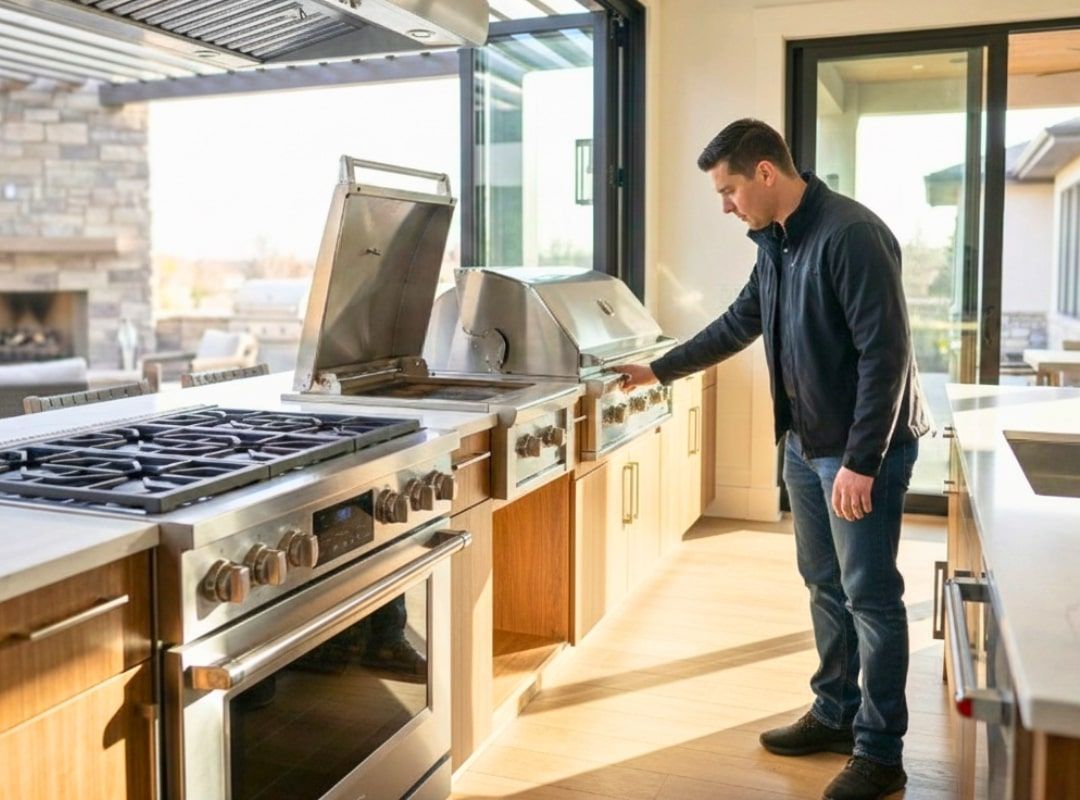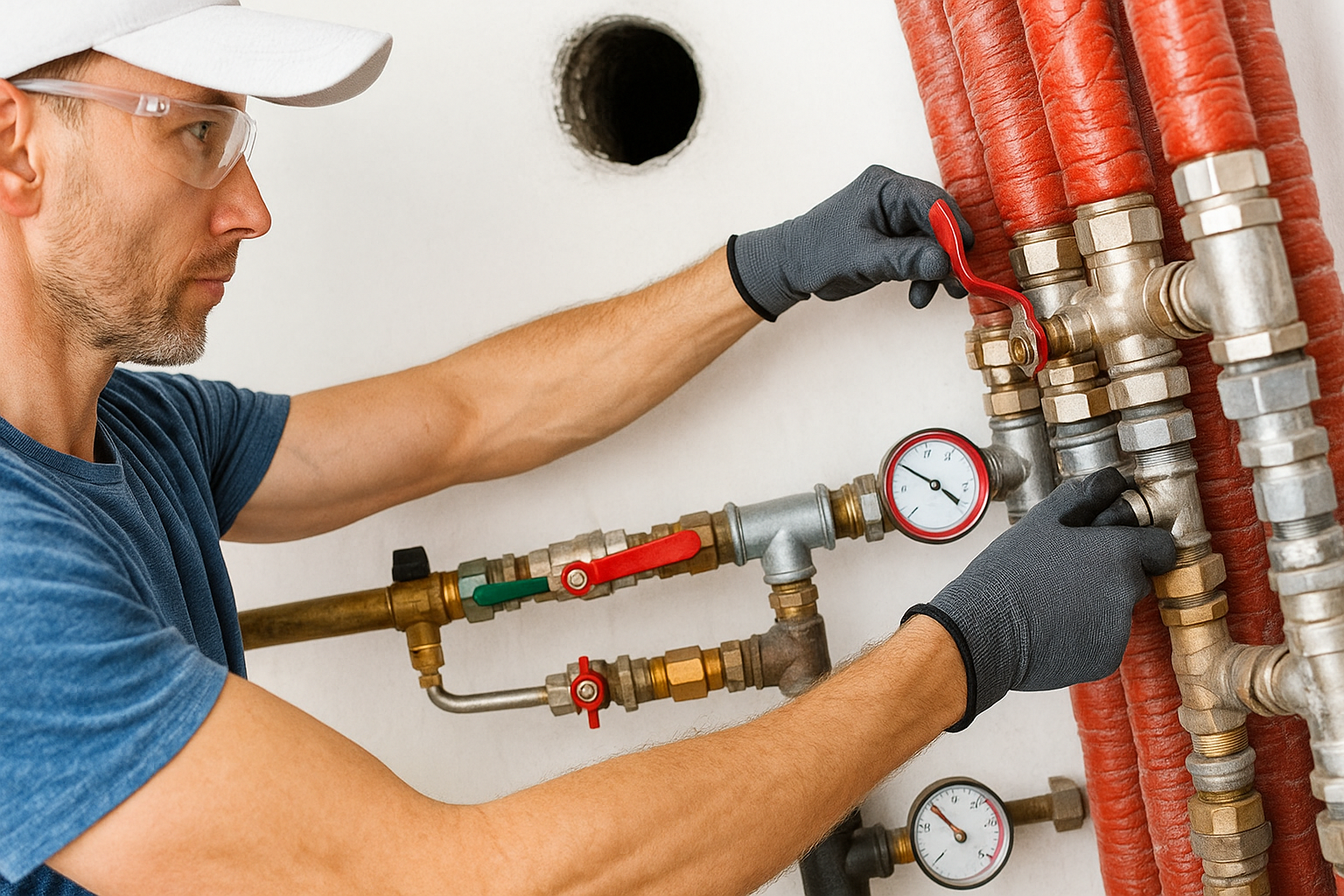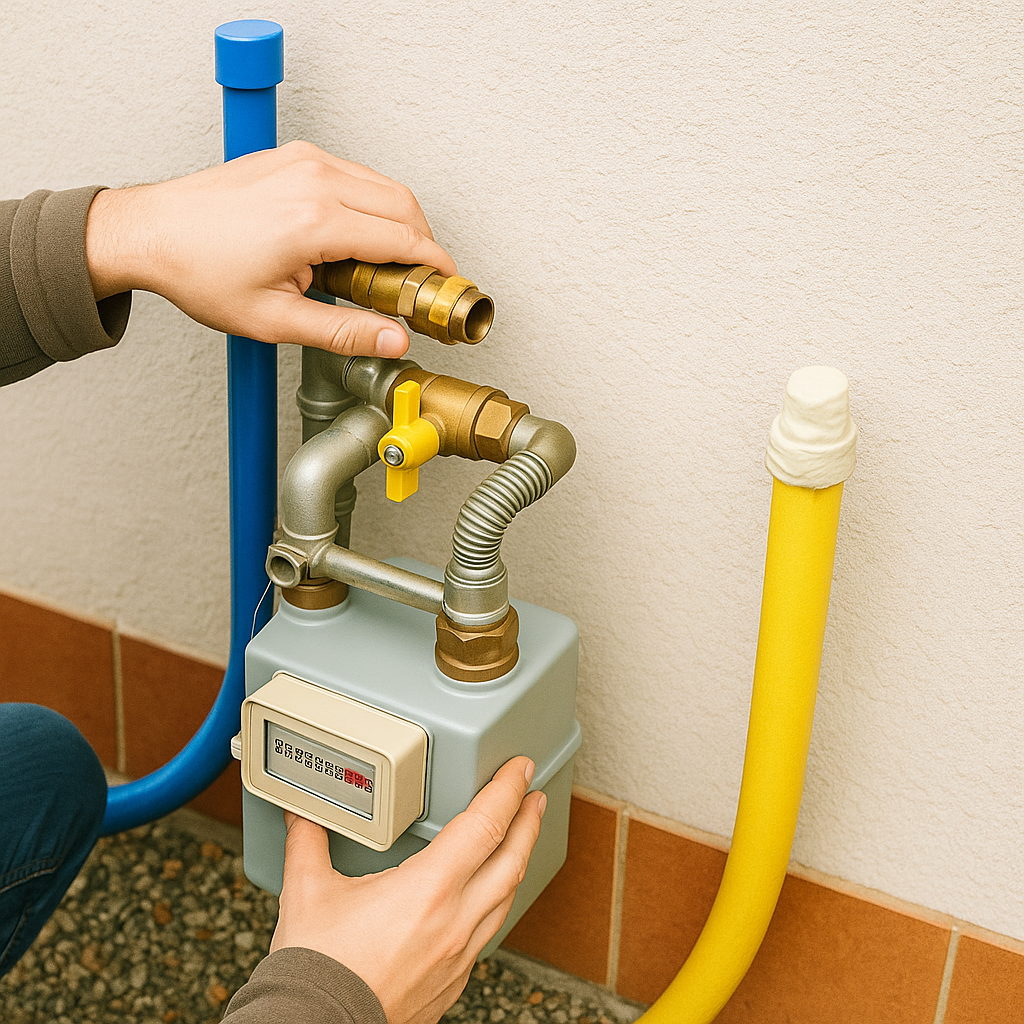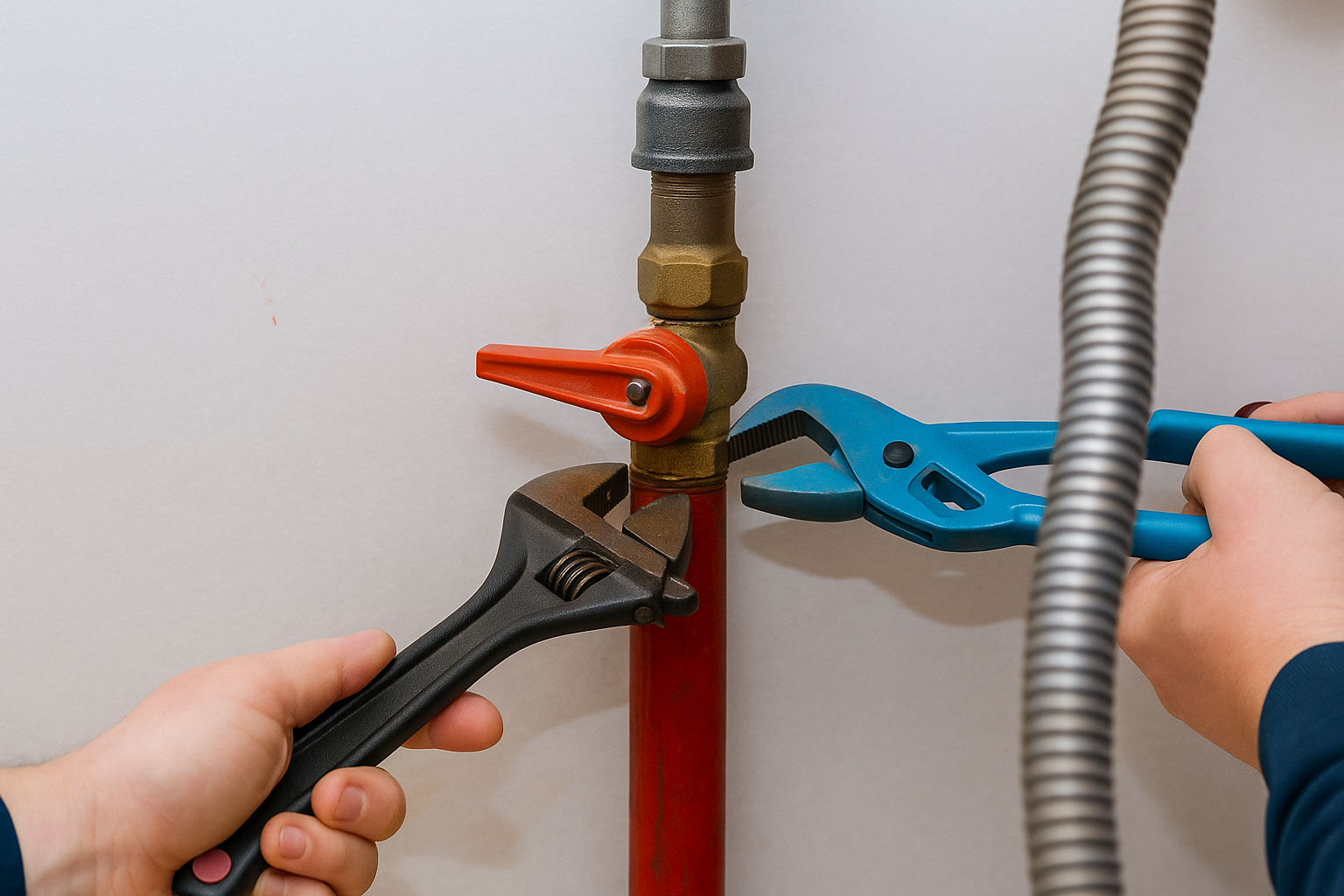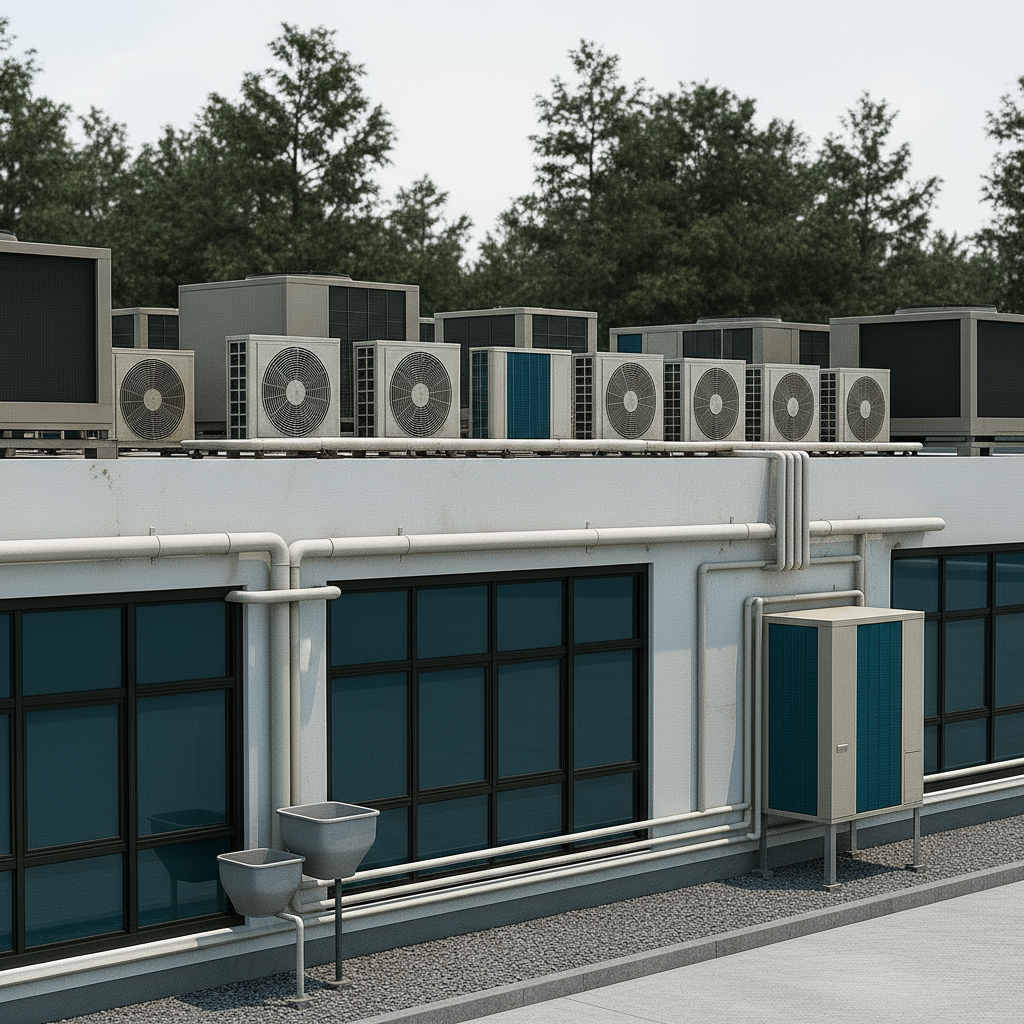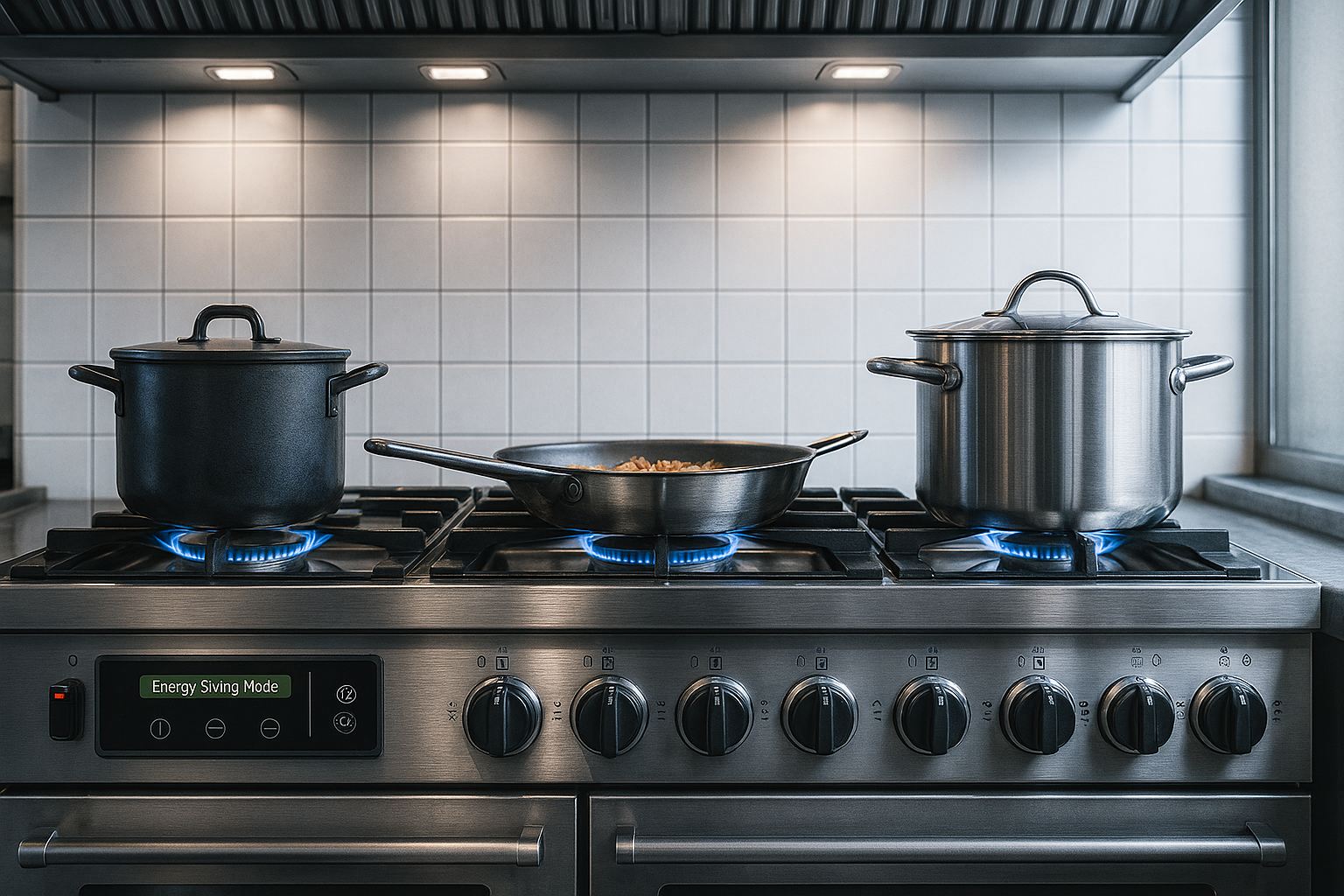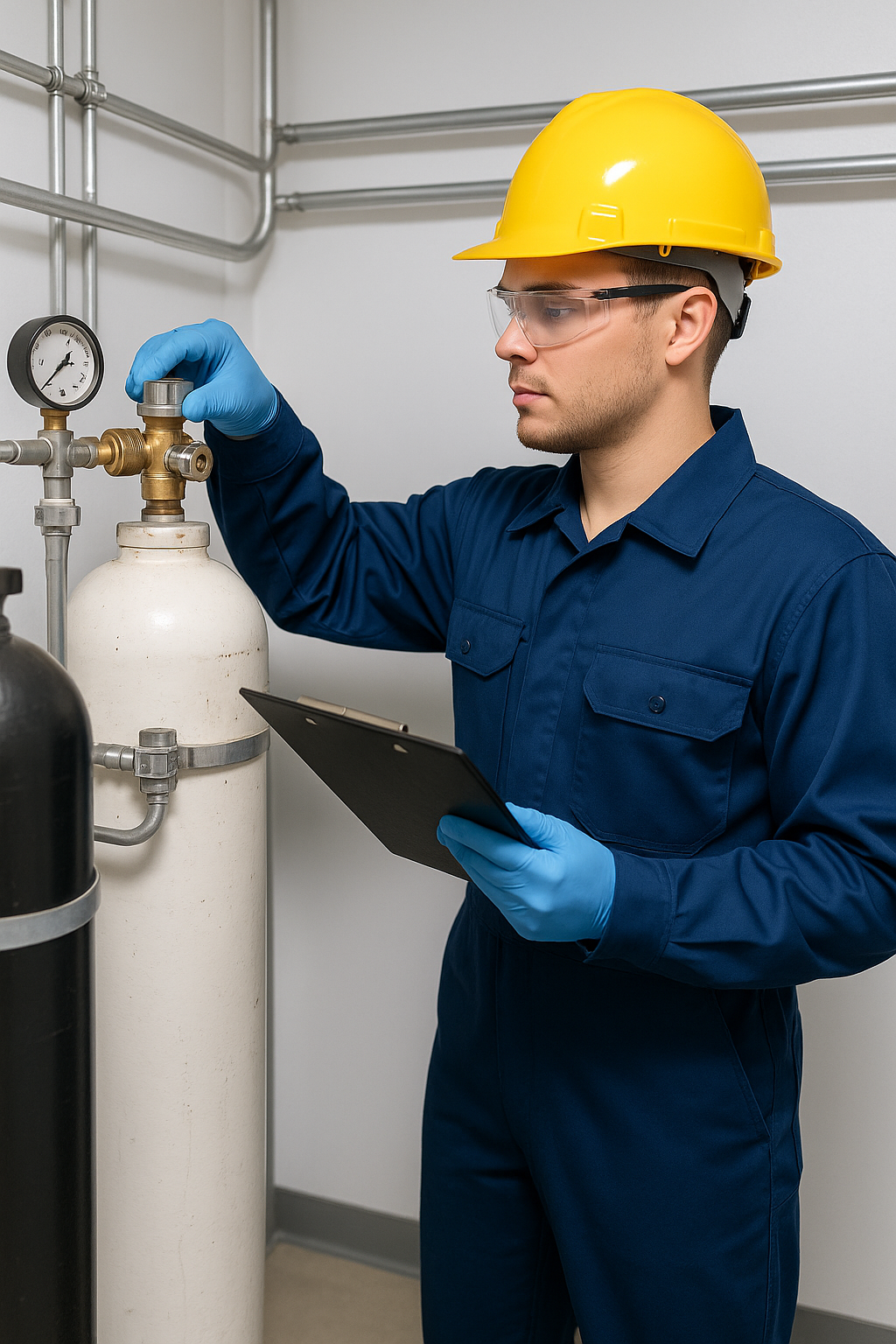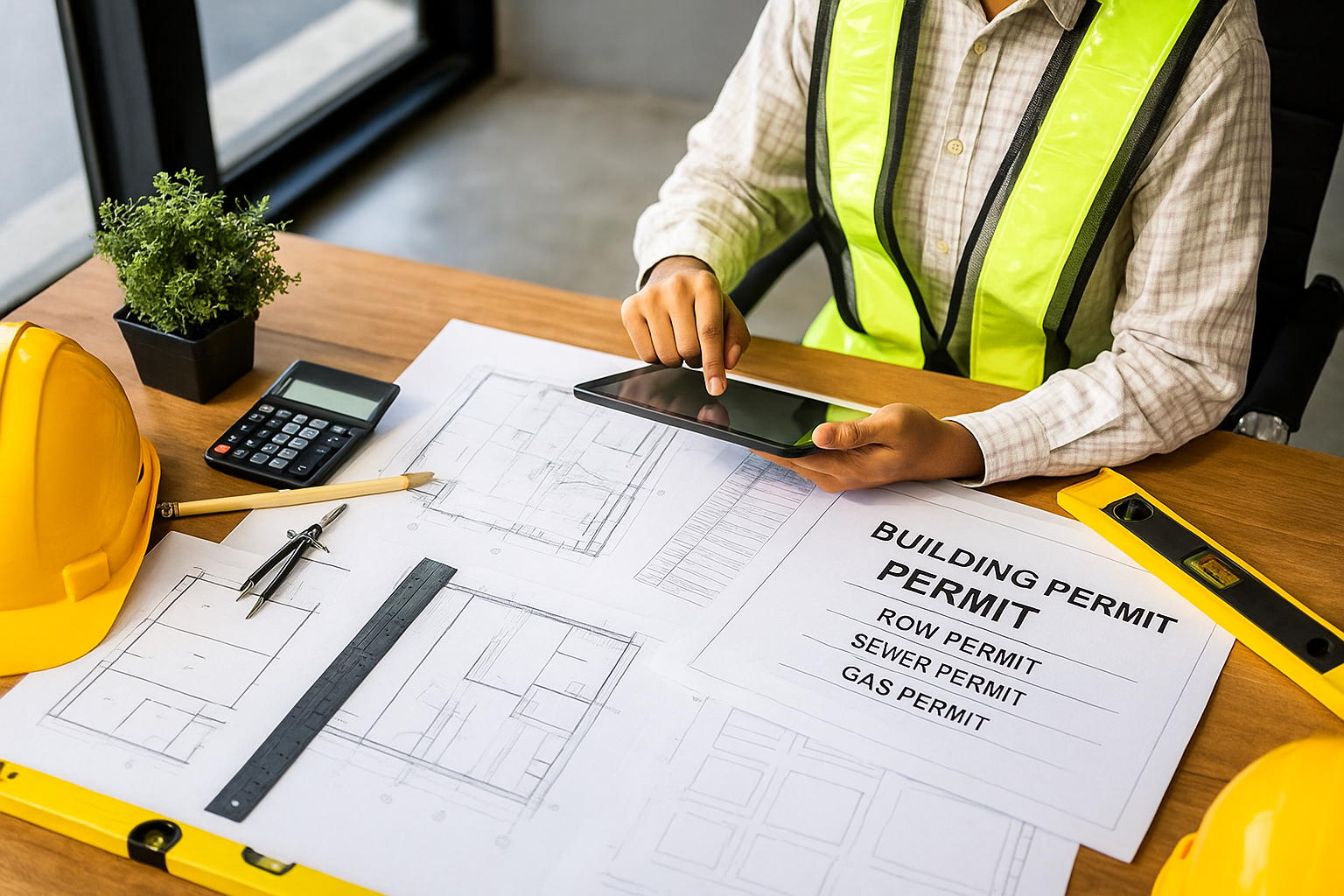Can You Run a Gas Line to a Pool Heater? Expert Guide for Virginia Homeowners | NOVA Gas
TLDR;
Yes, you can run a gas line to a pool heater, but it must be done safely and legally by a licensed gas fitter or plumber—especially in Virginia where specific codes and permit requirements apply. Professional installation ensures proper gas sizing, code compliance, and long-term performance.
Why Install a Gas Line to a Pool Heater?
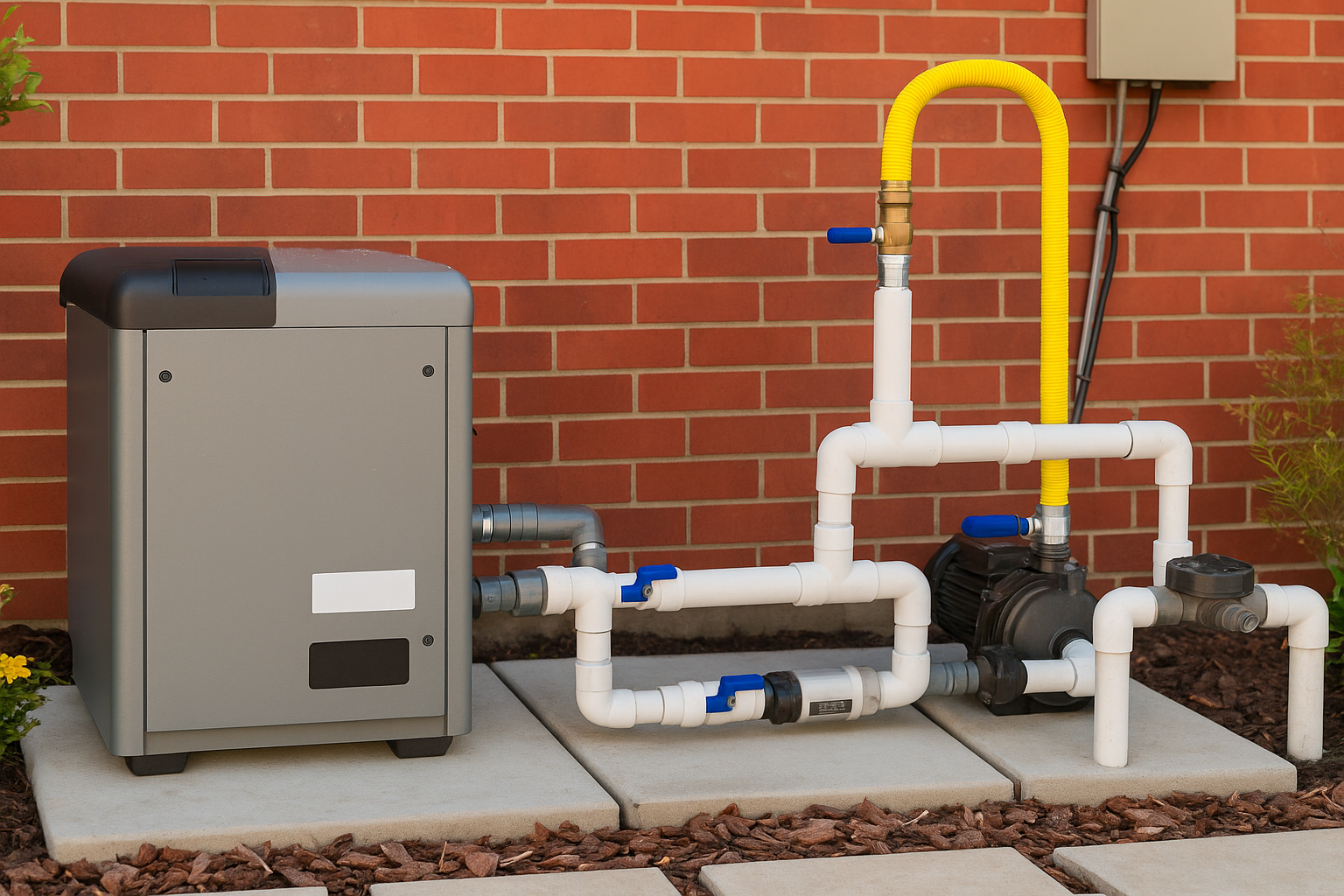
For Virginia homeowners, especially those living in areas with cooler nights or seasonal chill, a gas pool heater offers a reliable way to extend your swimming season.
Compared to electric or propane options, gas-powered heaters offer:
- Faster water heating (ideal for large or deep pools)
- Lower per-BTU energy cost than electric
- Long-term durability
- Year-round functionality even in colder climates
This makes natural gas an ideal fuel source—if you have a gas line accessible or are willing to have one installed.
Virginia Regulations and Licensing Requirements
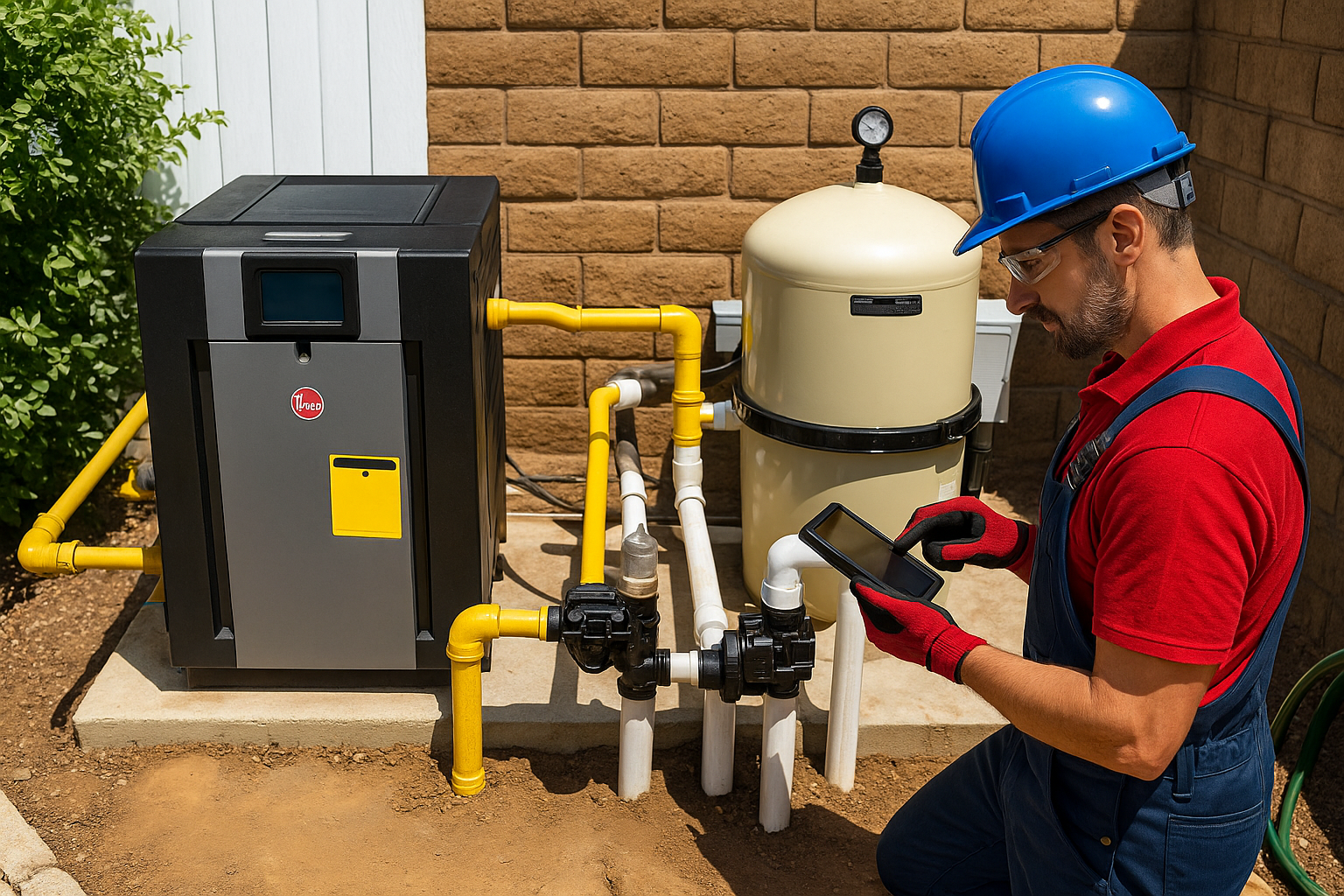
Running a gas line is not a casual DIY project. In Virginia, it's a regulated task that must follow strict local and state codes.
What you need to know in Virginia:
- Permits are required from your local building department before installation begins
- Only a
licensed master gas fitter or plumber is legally permitted to install or modify a gas line
- Cities like
Virginia Beach, Fairfax, and Alexandria may have their own nuances, such as inspection fees and setback rules
- Inspections are mandatory post-installation to ensure compliance and safety
Licensed professionals in Virginia include:
- NOVA Gas (serving Northern Virginia)
- Gas Specialty Co. (serving Hampton Roads)
Gas Line Sizing: It’s Not One-Size-Fits-All
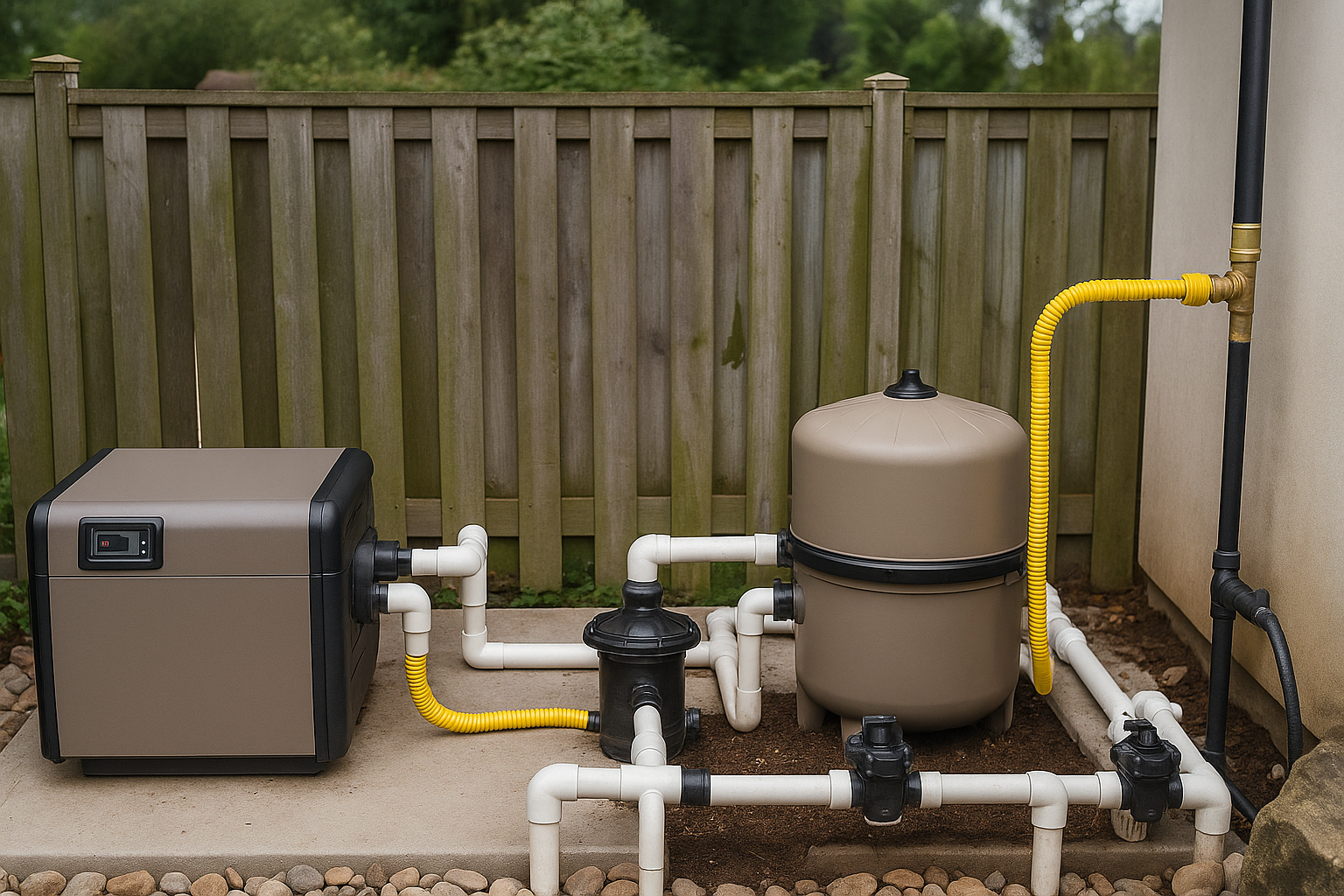
The size of your gas line depends on the BTU requirement of your pool heater, the distance from the gas source, and the type of piping used.
Key considerations:
- BTU Rating: Most residential pool heaters range between 200,000–400,000 BTUs
- Line Distance: Longer distances require larger diameter pipes to maintain proper pressure
- Pipe Type: Black iron, galvanized steel, or CSST (corrugated stainless steel tubing) all have different flow capacities
Example:
| Distance (Feet) | BTU Load | Recommended Pipe Diameter |
|---|---|---|
| 50 ft | 200,000 | 1 inch |
| 100 ft | 200,000 | 1.25–1.5 inch |
| 150 ft | 400,000 | 2 inch |
Undersizing the line leads to pressure drops and heating inefficiency. Proper calculations are non-negotiable.
Schedule Professional Installation Today!
Pipe Materials and Route Planning
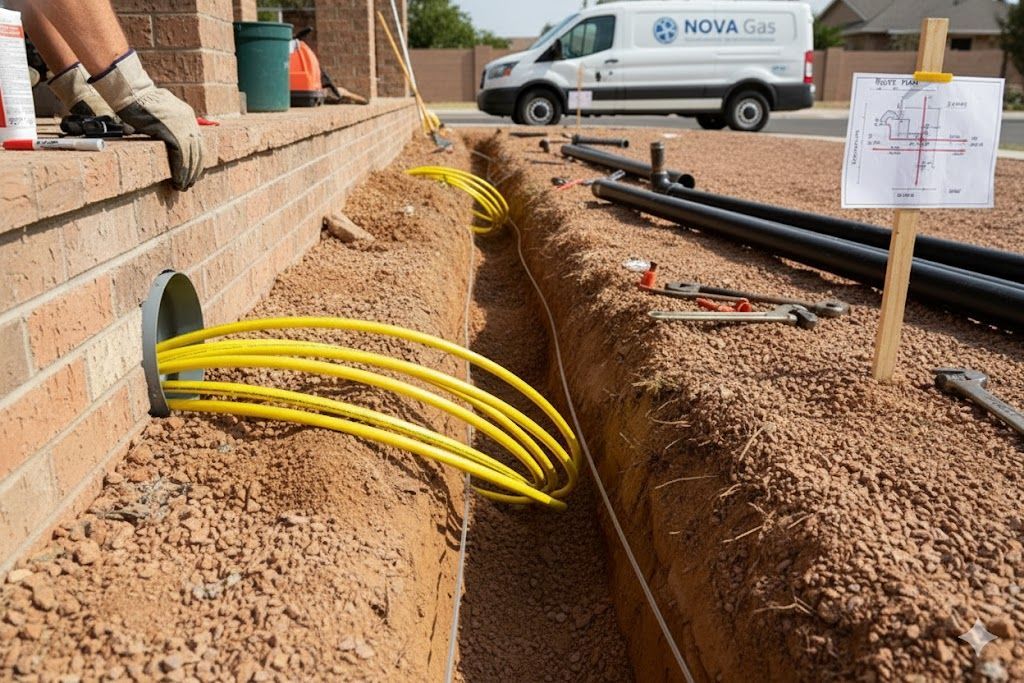
Gas line material matters. It impacts cost, installation complexity, and code compliance. Many homeowners turn to professional outdoor gas line services to make sure their project meets safety standards and avoids costly mistakes.
Common materials:
- Black iron pipe: Traditional, strong, and preferred for long runs
- CSST: Flexible, easier to install but must be bonded and protected
- PVC/Plastic: Never used for gas; avoid confusion with electrical conduits
Route planning essentials:
- Must be
clearly mapped
- Avoid high-traffic areas or tree roots
- Maintain
minimum burial depth of 12"–18" (varies by locality)
- Gas lines through walls need proper
sleeving and sealant
Bonus Tip:
Some jurisdictions require a
tracer wire along with buried CSST or polyethylene gas line for future location.
Step-by-Step Overview of a Professional Gas Line Installation
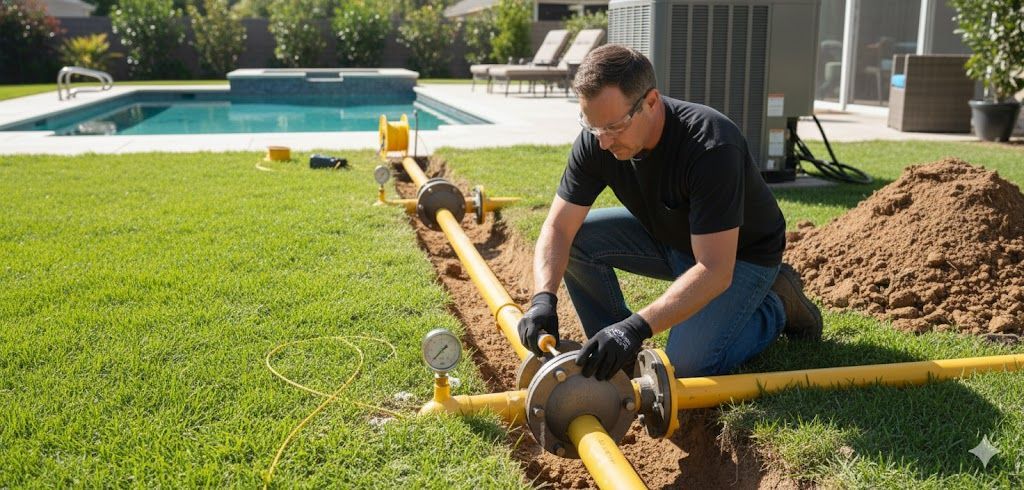
Running a gas line to a pool heater follows a clear sequence. Here’s what professionals like NOVA Gas typically do. As part of our outdoor gas appliance installation, we handle everything from planning and permits to trenching, sealing, and testing for leaks:
- Assessment and Planning
- Determine BTU needs, line distance, and equipment location
- Evaluate soil and trenching logistics
- Permit Acquisition
- File documents with the local building department
- Pay applicable fees
- Material Selection
- Choose suitable pipe diameter and material
- Prepare fittings, connectors, and tracer wire if needed
- Gas Shut-Off and Safety Prep
- Secure the supply at the meter
- Wear PPE and confirm ventilation
- Trenching and Pipe Laying
- Dig trenches to required code depth
- Lay and secure the pipe, sleeve when crossing through structures
- Connection and Sealing
- Connect with proper pipe sealant (e.g., PTFE thread compound)
- Install shutoff valve and union connector
- Pressure Test and Leak Check
- Perform air pressure test for 15+ minutes
- Apply
soapy water solution on joints to identify leaks
- Inspection and Approval
- Schedule and pass local authority inspection
- Get greenlight to activate the line
- Backfill and Restoration
- Carefully fill trenches, restore landscape
- Document route for future reference
Common Mistakes and DIY Risks
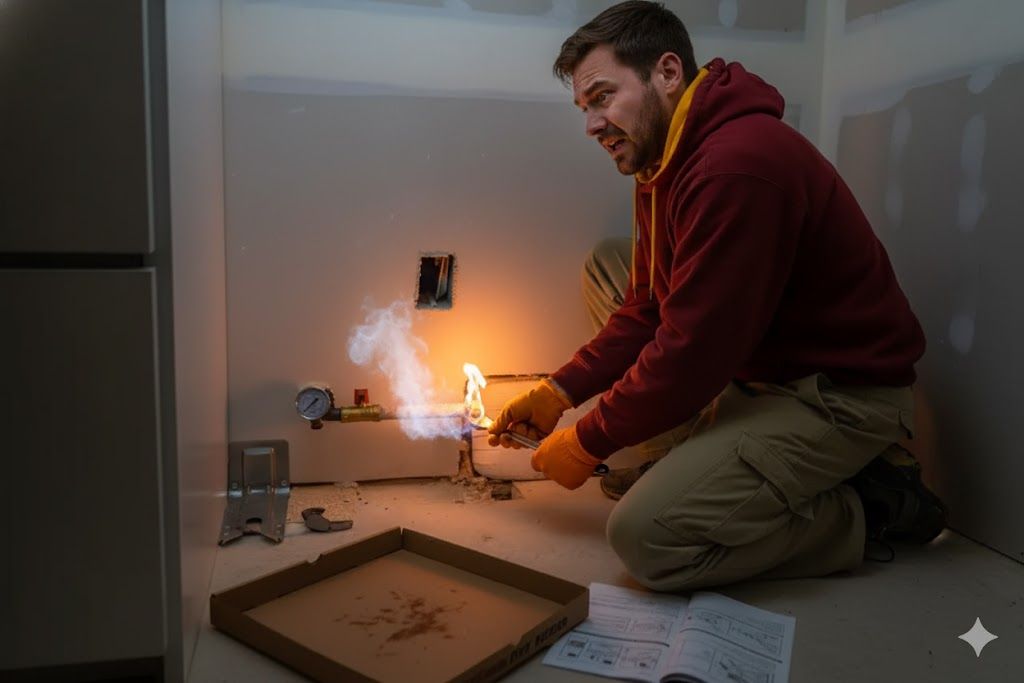
DIY gas line installations are often penny-wise but pound-foolish. Even small errors can lead to dangerous consequences.
Top pitfalls:
- Undersized piping causing low pressure and heater failure
- Improper sealing leading to gas leaks
- Routing conflicts with water, electrical, or septic lines
- Code violations delaying project approval
- Failing pressure test due to faulty connections
Unless you’re a licensed gas fitter in Virginia, DIY is strongly discouraged.
Schedule Professional Installation Today!
Post-Installation Care and Seasonal Maintenance
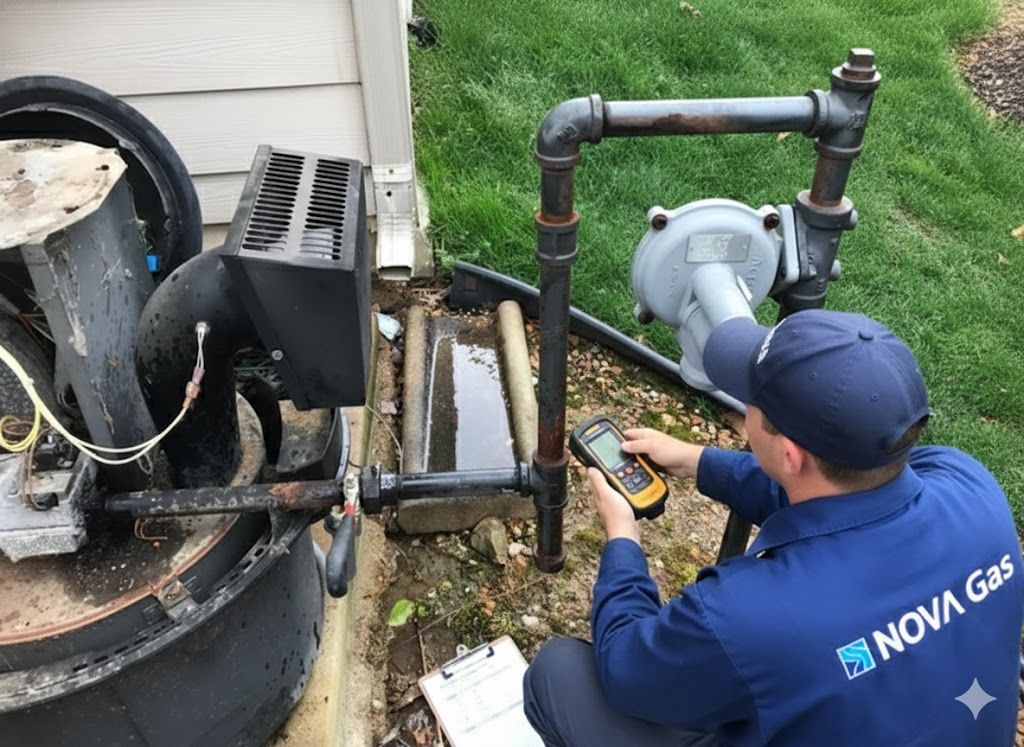
Once installed, your gas line should serve reliably for years—but that doesn't mean it’s “set and forget.” Periodic inspections and outdoor gas line repair ensure your system remains safe, especially after winter weather or heavy use.
Best practices:
- Ensure
shutoff valve is accessible
- Keep a
clear map of the underground line
- Perform
annual leak checks, especially before pool season
- In winter,
drain water lines and inspect pipe insulation
- Have NOVA Gas or another local expert perform periodic checkups
Exploring Long-Term Options: Is a Gas Pool Heater Worth It?
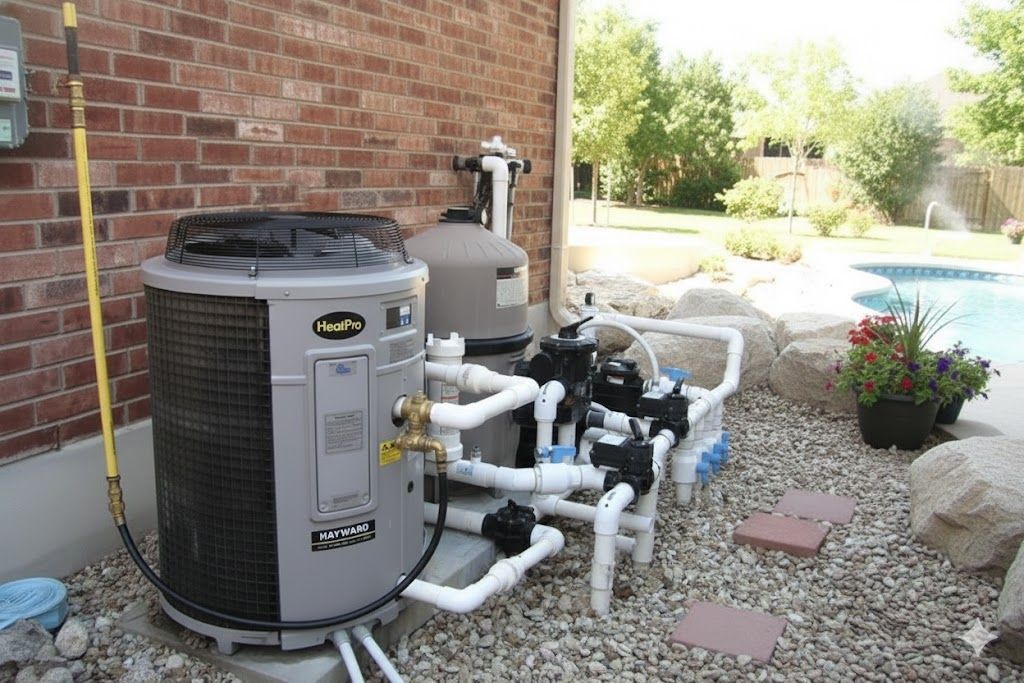
While running a gas line adds upfront cost, the long-term benefits often outweigh the investment.
Consider this:
- Natural gas is
cheaper per BTU than propane or electricity
- Gas heaters last
5–10 years with proper care
- They work
quickly and efficiently, even during cold snaps
- They allow you to
maximize your pool investment year-round
If you already use gas for your home appliances, running a new line to the pool heater often makes both logistical and financial sense.
Should You Run a Gas Line to Your Pool Heater?
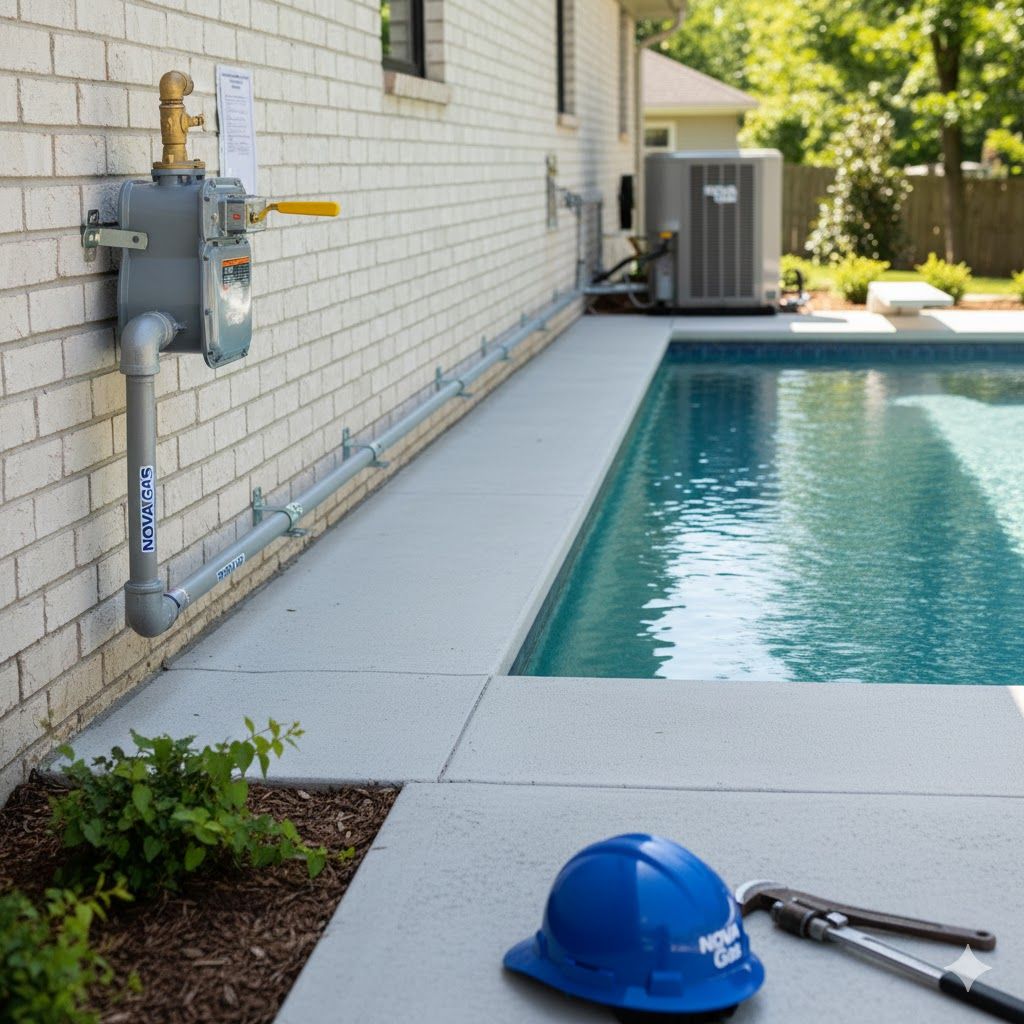
Absolutely—if done professionally. For Virginia homeowners, especially those in NOVA, Richmond, or Virginia Beach, a gas line installation for a pool heater provides long-term efficiency and comfort.
But remember:
- This is not a DIY job
- You need the
right materials, permits, and people
- Hiring a
licensed expert like NOVA Gas ensures compliance, safety, and peace of mind
Gas work is serious business. If you’re unsure where to start, contact NOVA Gas for a consultation. We’ll help you size, plan, and install your pool heater gas line—so you can swim longer, safer, and smarter.

